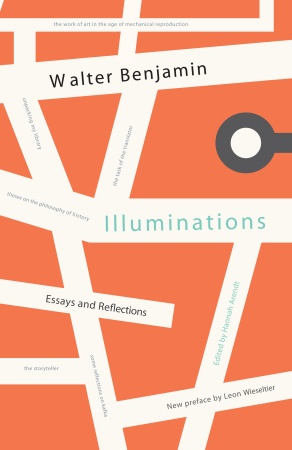David Norman Rodowick: Reading the Figural, or, Philosophy After the New Media (2001)
Filed under book | Tags: · cinema, digital culture, film theory, new media, philosophy, philosophy of history, postmodernism, poststructuralism, semiotics, utopia

In Reading the Figural, or, Philosophy after the New Media D. N. Rodowick applies the concept of “the figural” to a variety of philosophical and aesthetic issues. Inspired by the aesthetic philosophy of Jean-François Lyotard, the figural defines a semiotic regime where the distinction between linguistic and plastic representation breaks down. This opposition, which has been the philosophical foundation of aesthetics since the eighteenth century, has been explicitly challenged by the new electronic, televisual, and digital media. Rodowick—one of the foremost film theorists writing today—contemplates this challenge, describing and critiquing the new regime of signs and new ways of thinking that such media have inaugurated.
To fully comprehend the emergence of the figural requires a genealogical critique of the aesthetic, Rodowick claims. Seeking allies in this effort to deconstruct the opposition of word and image and to create new concepts for comprehending the figural, he journeys through a range of philosophical writings: Thierry Kuntzel and Marie-Claire Ropars-Wuilleumier on film theory; Jacques Derrida on the deconstruction of the aesthetic; Siegfried Kracauer and Walter Benjamin on the historical image as a utopian force in photography and film; and Gilles Deleuze and Michel Foucault on the emergence of the figural as both a semiotic regime and a new stratagem of power coincident with the appearance of digital phenomena and of societies of control.
Scholars of philosophy, film theory, cultural criticism, new media, and art history will be interested in the original and sophisticated insights found in this book.
Publisher Duke University Press, 2001
Post-Contemporary Interventions series
ISBN 0822327228, 9780822327226
276 pages
PDF (updated on 2012-7-14)
Comment (1)Theodor W. Adorno: Negative Dialectics (1966-) [DE, EN, PT]
Filed under book | Tags: · dialectic, epistemology, Frankfurt school, identity, metaphysics, negative dialectics, ontology, phenomenology, philosophy, philosophy of history, sociology

“Theodor Adorno was one of the great intellectual figures of the twentieth century. Negative Dialectics is his major and culminating work. In it he attempts to free critical thought from the blinding orthodoxies of late capitalism, and earlier ages too. The book is essential reading for students of Adorno. It is also a vital weapon for making sense of modern times.”
German edition
Publisher Suhrkamp, Frankfurt am Main, 1966
414 pages
English edition
Translation by E.B.Ashton
First published by Seabury Press, New York, 1973
Publisher Taylor & Francis, 2004
ISBN 0415052211, 9780415052214
416 pages
publisher
google books
English edition
Translation by Dennis Redmond
undated
translator
wikipedia
more information (Stanford Encyclopedia of Philosophy)
Negative Dialektik (German, 1966, 8 MB, updated on 2016-12-23)
Negative Dialectics (English, trans. Ashton, 1973/2004, updated on 2013-6-11)
Negative Dialectics (English, trans. Redmond, updated on 2013-6-11)
Negative Dialectics (English, updated translation by Redmond with commentary, 2001, TXT)
Dialética negativa (Portuguese, trans. Marco Antonio Casanova, 2009, 12 MB, added on 2013-8-10)
Walter Benjamin: Illuminations: Essays and Reflections (1955-) [EN, ES, SK]
Filed under book | Tags: · cultural criticism, literature, philosophy of history, theatre, translation

“Walter Benjamin was one of the most original cultural critics of the twentieth century. Illuminations includes his views on Kafka, with whom he felt a close personal affinity; his studies on Baudelaire and Proust; and his essays on Leskov and on Brecht’s Epic Theater. Also included are his penetrating study “The Work of Art in the Age of Mechanical Reproduction,” an enlightening discussion of translation as a literary mode, and Benjamin’s theses on the philosophy of history.
Hannah Arendt selected the essays for this volume and introduces them with a classic essay about Benjamin’s life in dark times. Also included is a new preface by Leon Wieseltier that explores Benjamin’s continued relevance for our times.”
First published in German as Illuminationen. Ausgewählte Schriften, Suhrkamp, Frankfurt a.M., 1955
English edition
Translated by Harry Zohn
Edited and with an introduction by Hannah Arendt
First published in 1968
Preface by Leon Wieseltier
Publisher Schocken Books, a division of Random House, New York, 2007
ISBN 0805202412, 9780805202410
278 pages
Publisher (EN)
Illuminations: Essays and Reflections (English, 1968/2007, updated on 2020-3-16)
Iluminaciones II: Baudelaire: un poeta en el esplendor del capitalismo (Spanish, trans. Jesús Aguirre, 1972, added on 2013-6-11)
Iluminácie (Slovak, trans. Adam Bžoch and Jana Truhlářová, 1999, added on 2013-6-11)

